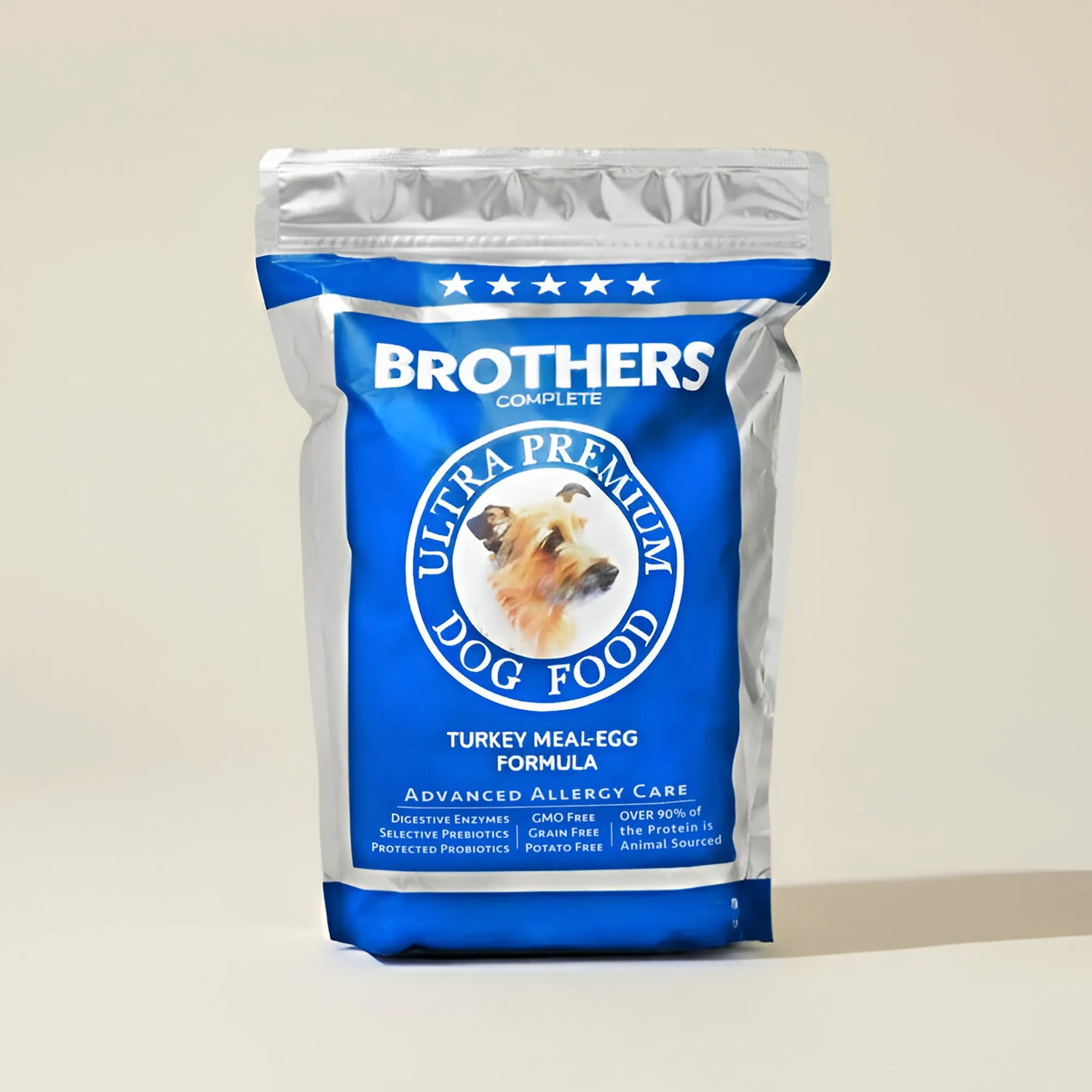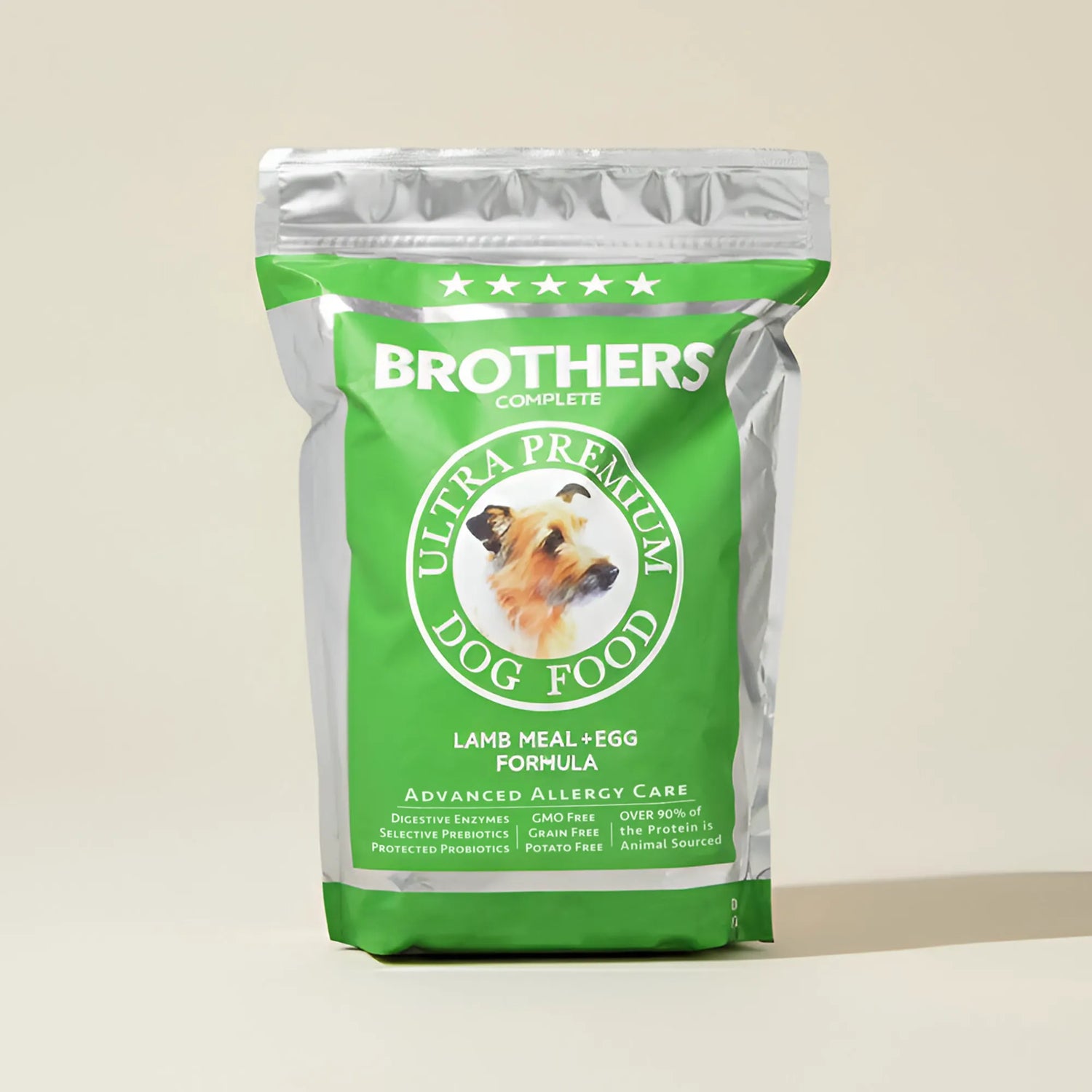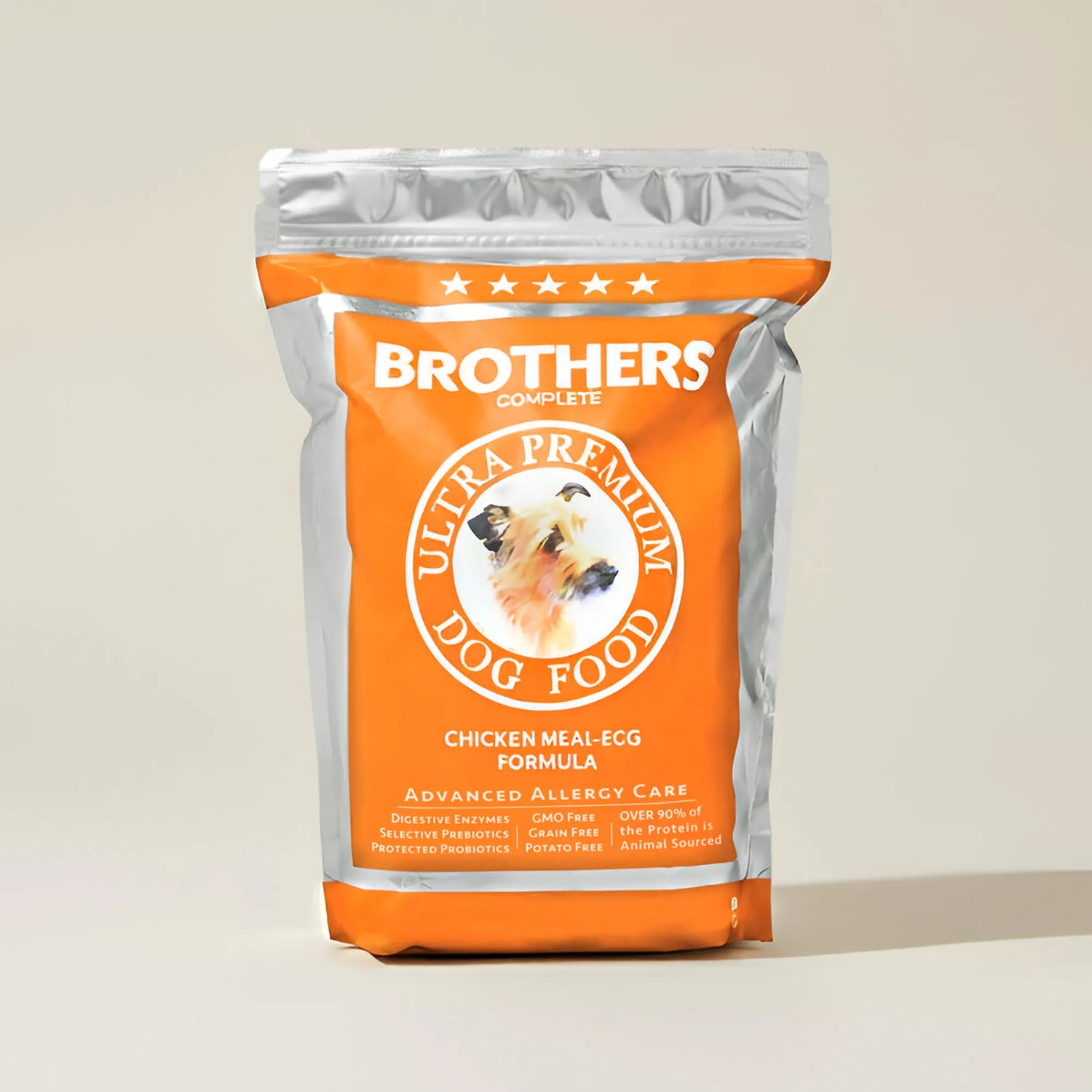
Poop Problems? What Your Dog’s Stool Says About Their Health
Summary:
Loose stool? Chronic diarrhea? Constipation? Poop issues are one of the clearest signs that something is off with your dog’s health — especially their diet and digestion. In this post, we break down the most common causes of poop problems in dogs, what normal stool looks like, and how to support healthy digestion through the right food (and a balanced gut).
Let’s Talk About Poop (Yes, Really)
You can learn a lot from your dog’s poop — even if you don’t want to.
- Is it too soft?
- Too dry?
- Greasy or slimy?
- Is your dog straining?
- Going too often?
- Or not going at all?
As uncomfortable as it might be to talk about, stool is one of the best daily indicators of your dog’s overall health.
What Does Healthy Dog Poop Look Like?
According to the AKC, normal dog stool should be:
- Compact and log-shaped
- Moist but firm
- Chocolate-brown in color
- Easy to pick up without crumbling or smearing
That’s what we’re aiming for. But if you're seeing something else — let’s break down why.
Common Dog Poop Problems (and What They Mean)
Loose Stool or Diarrhea
If you’re wondering “Why does my dog have diarrhea?”
Per the AKC and VCA, common causes include:
- Sudden diet changes
- Overfeeding
- Food sensitivities or low-quality ingredients
- Parasites or infections
- Stress or anxiety
- Too many rich treats or table scraps
- Gut imbalance (especially after antibiotics)
Pro tip: Yes, overfeeding can cause diarrhea — even with high-quality food.
Soft or Shapeless Poop
Not full-on diarrhea, but not ideal either. This often points to:
- Excess starch or poor-quality carbohydrates in the diet
- Not enough fiber
- Mild gut irritation
- A lack of digestive enzymes
If your dog’s poop is always soft, something isn’t being fully digested — which often means inflammation or imbalance in the gut.
Constipation (Hard, Dry, Infrequent Poop)
According to Cornell University, signs of constipation in dogs include:
- Straining to poop
- Hard, dry pellets
- Skipping bowel movements
- Crying when trying to go
- Scooting or restlessness
Common causes:
- Dehydration
- Lack of fiber or bulk in the diet
- Gut dysbiosis
- Too much bone in raw diets
- Insufficient fat
- Lack of exercise
Constipation is just as much a red flag as diarrhea — and it needs to be addressed at the root.
How Gut Health Plays a Role in Every Poop Problem
Whether it’s soft stool, loose stool, or no stool — the gut is usually at the center.
Your dog’s gut contains trillions of microbes (the microbiota) that help:
- Break down food
- Absorb nutrients
- Regulate stool consistency
- Reduce inflammation
- Prevent yeast or bad bacteria from overgrowing
When these microbes are out of balance (aka dysbiosis), poop problems show up fast.
So... What Causes Bad Gut Health in Dogs?
- Over-processed, carb-heavy kibble
- Low-quality protein or excessive plant protein
- Fillers like corn, wheat, soy, or rice
- Frequent antibiotics without probiotic follow-up
- Poor digestion due to enzyme deficiency
- Sudden changes in food or routine
If your dog’s poop has been inconsistent or problematic for weeks or months, their food may be doing more harm than good.
What to Feed Dogs with Poop Problems
You want a food that:
- Uses animal-sourced protein as the foundation
- Includes digestive enzymes to help break food down
- Has added probiotics and prebiotics to balance gut flora
- Uses low-glycemic, anti-yeast carbs (not corn or rice)
- Avoids common allergens and fillers
Why Brothers Dog Food Supports Better Stool — Naturally
Our recipes are built for digestive integrity — not just marketing claims.
Every Brothers recipe is designed to:
- Improve stool consistency
- Reduce gas and bloating
- Ease transitions and gut inflammation
- Support immune health through gut balance
- Help dogs with chronic poop issues find relief
With:
- Over 90% animal-sourced protein
- A proprietary blend of digestive enzymes + probiotics
- Low-starch, yeast-starving carbs
- No corn, wheat, soy, or cheap fillers
Our food helps your dog get more from every bite — and leave less behind.
Final Thoughts: Don’t Ignore the Poop
If your dog is pooping too much, too little, or too inconsistently — it’s not just “something they ate.”
It’s probably a gut imbalance or dietary mismatch.
The good news? It’s fixable.
With the right nutrition, you can restore digestion, improve stool quality, and help your dog feel better — all the way down.
Tired of picking up the consequences of poor digestion?
Feed your dog food that supports every part of the process — from bowl to backyard.
brothersdogfood.com
Sources
- AKC American Kennel Club: https://www.akc.org/expert-advice/health/dog-diarrhea/
https://www.akc.org/expert-advice/health/puppy-has-diarrhea/
https://www.akc.org/expert-advice/health/puppy-diarrhea/
- Cornell University College of Veterinary Medicine: https://www.vet.cornell.edu/departments-centers-and-institutes/cornell-feline-health-center/health-information/feline-health-topics/constipation
- VCA Animal Hospitals: https://vcahospitals.com/shop/articles/common-digestive-issues-in-pets
Share







